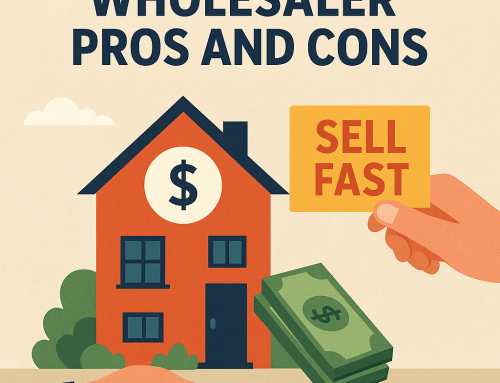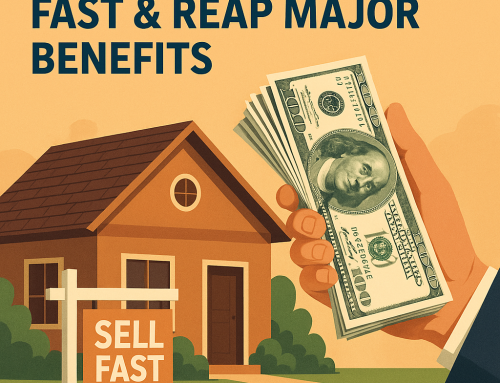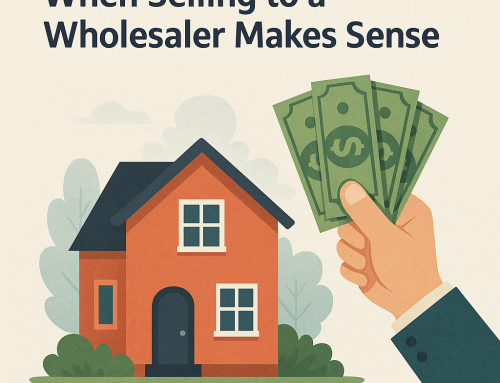- Understanding Wholesalers
- Pros of Working with a Wholesaler
- Cons of Working with a Wholesaler
- The Role of Real Estate Agents
- Pros of Working with a Real Estate Agent
- Cons of Working with a Real Estate Agent
- Making the Right Choice
When it comes to selling a home quickly, many homeowners find themselves debating between working with a wholesaler or a real estate agent. Each option has its own unique set of advantages and disadvantages, making it essential to understand the nuances before deciding how to proceed. Whether you’re looking for a fast cash offer or just want to close the deal swiftly, knowing the pros and cons can help you make an informed choice.
Understanding Wholesalers
A wholesaler typically acts as an intermediary in the real estate market. They find properties that can be purchased below market value and then sell those contracts to investors or other buyers for a profit. This process can be particularly appealing for homeowners who need to sell fast.
Pros of Working with a Wholesaler
1. Speed of Transaction: Wholesalers often have cash buyers lined up, allowing for quick sales. If you need cash for your home urgently, they can facilitate a faster closing process.
2. Less Paperwork: The transaction process with a wholesaler generally involves less red tape compared to traditional sales, streamlining the experience for homeowners.
3. No Repairs Required: Wholesalers typically buy properties in “as-is” condition, meaning you won’t have to invest time or money in repairs or renovations.
4. Direct Cash Offers: Many wholesalers have cash available, allowing them to make immediate offers that can expedite the sale.
Cons of Working with a Wholesaler
1. Lower Sale Price: Wholesalers often offer less than market value since their business model relies on reselling the property at a markup to cash in on profit.
2. Limited Exposure: Working with a wholesaler means your home may not get the extensive marketing it would with a real estate agent.
3. Risk of Scams: In an unregulated market, there’s the potential for scams. Homeowners must be cautious and do thorough research before engaging with a wholesaler.
The Role of Real Estate Agents
Real estate agents serve as professionals who assist in selling homes by listing them on multiple platforms, negotiating terms, and guiding homeowners through the sales process. If time isn’t as pressing, engaging a real estate agent may be a viable option.
Pros of Working with a Real Estate Agent
1. Market Expertise: Agents understand local market trends and can often set a selling price that maximizes your profit relative to current market conditions.
2. Wider Reach: Listing your home with an agent provides greater exposure, potentially attracting multiple buyers and higher offers.
3. Negotiation Skills: Experienced agents have strong negotiation skills, which can help secure a better price and terms for the sale.
4. Comprehensive Service: Real estate agents handle all aspects of the sale, including paperwork and follow-ups, reducing the burden on you as the seller.
Cons of Working with a Real Estate Agent
1. Time-Consuming: Selling through an agent may take longer, particularly if your home is not priced or marketed advantageously.
2. Commission Fees: Agents typically charge a commission that can range from 5-6% of the sale price, which deducts from your overall profit.
3. Potential Repairs Needed: Agents often recommend making repairs and staging the home before listing, which can delay the process and require additional expenses.
Making the Right Choice
Ultimately, the decision between a wholesaler and a real estate agent should be based on your individual circumstances and priorities. If your primary goal is to sell your home fast and you’re willing to accept a lower cash offer, a wholesaler may be the ideal choice. On the other hand, if you can afford to invest time and aim for a market-value sale, working with a real estate agent might be more beneficial.
In closing, evaluating your needs—whether that’s speedy cash for your home or maximizing your profit—can guide you in selecting the path that aligns with your objectives. Each option has its merits, and understanding these can empower you to make the best decision for your home sale.




